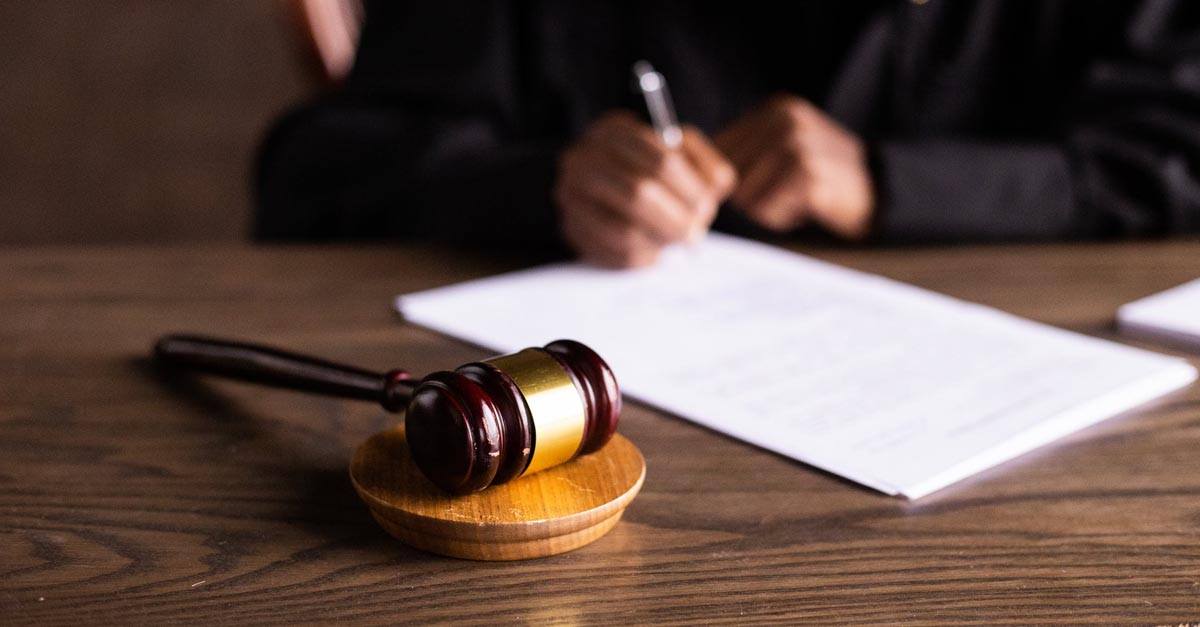The “Causal Challenges” before the Jury Tribunal
As is known, the Organic Law 5/1995 of May 22 (BOE nº 122 of May 23 ), “amended” by L.O. 8/1995 of November 16, with subsequent and insufficient “readjustments”, came to develop after many years of waiting, art. 125 of the Spanish Constitution of 1978 regarding the Jury Court that grants citizen participation in Criminal Justice, “suspended” since 1936…
Article 21 of the LOTJ, under the title “Recusal”, prescribes that
“The Public Prosecutor and the parties, to whom the questionnaire completed by the jury candidates must have previously been delivered, may formulate < recusal>, within the five days following said delivery, due to a lack of requisites or any of the causes of incapacity, incompatibility or prohibition provided for in this Law… Any cause of <recusal> that is known at this time, that is not formulated, may be alleged later. “
Obviously, the aforementioned “recusals” of jury candidates are prior to and a mere prelude to the new and complementary ones < challenges> for the constitution of the Court referred to in article 38 LOTJ (carried out by the Presiding Magistrate and/or by the parties) in relation to the possible existence of disabilities, prohibitions or excuses provided for in said Law.
It is also clear that both the initial recusals (art. 21) and the complementary ones (art. 38 ), are distant and different from (in English law “peremptory strikes”) </ em>prescribed in article 40.3 of the Jury Law and produced in response to the result of the open questioning carried out by the parties to each specific jury to verify its suitability regarding the “its lack of prejudice regarding the specific crime(s) being prosecuted”.
The scarcity (only THREE per party) of the number of challenges established by the Law is significantly objectionable, when precisely the choice of jurors and their condition that they are <suitable> is undoubtedly the crux of the trial by sworn citizens. Likewise, the inexplicable distribution made by the precept itself that they are challenges without allegation of cause by the parties accusing and others by defendants, but without taking into account at all in its numerical determination other elements of importance or relevance that justify said equality…< /p>
We find it clearly open to criticism, random and in violation of the freedom of the right of defense< strong> and equality of the parties what is prescribed in the following paragraph of article 40.3 itself: “If there are several accusers and accused, they must act by mutual agreement to indicate the jurors who challenge without allegation of cause. If there is no agreement, the order in which the accusing parties or defendants can formulate the challenge will be decided by lot, until the quota of challengeable parties is exhausted.”
To a greater extent, once again affecting an ostensible bankruptcy of the “equality of the parties in the process”, < strong>the following paragraph of the meritorious precept 40.3, in its third paragraph says:
“The civil plaintiff and third-party civil liability cannot file a challenge without cause”. Nor do we understand or share what is prescribed in 40.4 with respect to the fact that “When only two (candidates) remain to be appointed substitutes, they cannot file recusals without cause”.
Underlining the aforementioned bankruptcy of the “equality of the parties” in the prescribed procedure of “< /strong>recusals without cause”, I do not believe that anyone with a minimum of criminal procedural experience can deny that, in a majority of cases, the number of members of the < em>accused parties is significantly greater than the number of members of the accusing parties, so, if so, they would have greater number of possibilities for challenge. This is still not fully appreciable since even on this date, –when almost thirty (1995) years have passed since the Jury Court was reinstated in our country– the number of crimes , “in our country there is still a Jury Court but simply a jury threat”… At this point it is simply incomprehensible in a regime that claims to be </strong >progressive and open to the public, that crimes that are completely reprehensible from the vast majority of the social conscience, as they are especially and among others, crimes of gender violence and concordant, still outside the jurisdiction of the Jury Court, except when the undesirable death occurs of the victim… and it becomes the crime of murder or homicide…
Returning to the issue that initially concerns us, we emphasize that given the enormous limitations of “recusals” in our current legislation of the Jury Court, the Defense Lawyers to achieve the adequate conformation of its members in their desired impartiality and objectivity,</em > we must exhaust the invocation of disqualifications for cause (in English law “ strikes for cause”) against hostile witnesses, precisely at the time of the constitution of the Jury prescribed in art. 38.3 of the LOTJ, and with reference to 377 LEC on Clubbing Witnesses and, by analogy, in the article 219 LOPJ, especially in relation to the following relevant issues (similar or concordant) that had not been resolved by means of the previous legal challenges nor by the very limited challenges without allegation of reason</em >:
- Close relationship of friendship and/or enmity and/or interests of any nature with the parties.
- Accredited intellectual, moral, religious, labor, professional, political, social and/or participatory position in favor of or against the subject matter of the cause.
- Having participated in the investigation of the cause or in any other related to the parties, as accuser, police officer, investigator, expert, witness or similar, which may presuppose prejudice in the assessment of the evidence.</ em>
- Having been accused, prosecuted and/or judicially and/or administratively sentenced for crimes and/or infractions or misdemeanors related to the object of the case or another concordant one.
* Having been accused, prosecuted and/or judicially or administratively sentenced for crimes and/or infractions or misdemeanors related to giving false testimony ; or having been subject to “restraining orders”, or restrictive measures of freedom.
From the position of Lawyer in charge of defending the interests of any of the parties in court, we understand that it is NOT necessary to irremediably accept the limitations of the “</ strong>recusals” previously prescribed, nor understand that our right to constitute a Jury with impartial and objective members has been exhausted by the fact that the “recusals” of arts. 38.3 nor the limited “without allegation of reasons” of 40.3 and concordant LOTJ. As long as and at any time during the process that there are appreciable, verifiable and accreditable reasons, the “recusals for cause” are in force as an instrument to guarantee a trial with “ all guarantees”.
Let us also remember how criticizable is article 40.4 LOTJ that deprives the parties of “recusal without reason” when only two candidates remain in the quota to be designated substitutes, which would force us to exercise against them, if there are reasons, “causal recusals”.
In accordance with article 38.4 LOTJ, it will be the “Presiding Magistrate who will decide on the challenge, without recourse; but yes for the purposes of the appeal that may be filed against the sentence.”
All of the above leads us, as Lawyers who defend the interests of our patrons, to stress the absolute necessity of grant a “plus of relevance” to the formulation of <Recusals with allegation of Cause>, much better that, simply, rest the suitability of the constitution of the Court of Jury on the most comfortable, simple and very limited <reregulatory challenges and without allegation of reason> of the aforementioned articles of the LOTJ. Precisely for this reason, we must insist on the exceptional importance of the exquisite quality that the QUESTIONING of pre-jurors must have in the jury selection process, so that formulating the indispensable questions of special quality, which the Anglo-Saxon criminal experts call “loaded questions”, which we translate as “dynamite questions”, </em >inexorably lead the jury candidate to express and overturn before the court his true and perhaps hidden, restricted or silenced feelings regarding the subject “subjudice”, thus giving legitimate opportunity for the interrogating Counsel to formulate that “recusal with allegation of cause”, which, accepted by the Presiding Magistrate, could even determine the success of his procedural claim.</ strong>
Finally, I would like to clarify that the reason for this brief article was suggested to me by having verified the limited importance that is still given in procedural practice in our country to the selection process of the Jury and the quality of the questioning of the candidates, compared to my American experience where I have verified that the selection of the members of the “Jury” ( voir dire) is practically the “Gordian knot” of the defensive process and with respect to which the criminal law firm concentrate almost all the effort of procedural expenses, reaching in the most important cases, to hire psychologists specialized in the selection of juries and to project “shadow juries”</em > (shadow juries) that illuminate the reflections and arguments that supposedly could most influence, in one way or another, said alleged jurors.
We hope that the new procedural legislation in progress in our country will open much more citizen participation in their own Criminal Justice through the Jury Court, especially with respect to those crimes that are proven to have great repercussion and social interest , having also confirmed by the many years that have elapsed since its reinstatement in operation in 1995 (in obligatory development of article 125 of the 1978 Constitution), that this Socially participatory Court It is an ordinary court, duly consolidated and democratically necessary.
Gustavo López-Muñoz y Larraz
Expert Lawyer in Criminal Law< /strong>
01/03/2023







